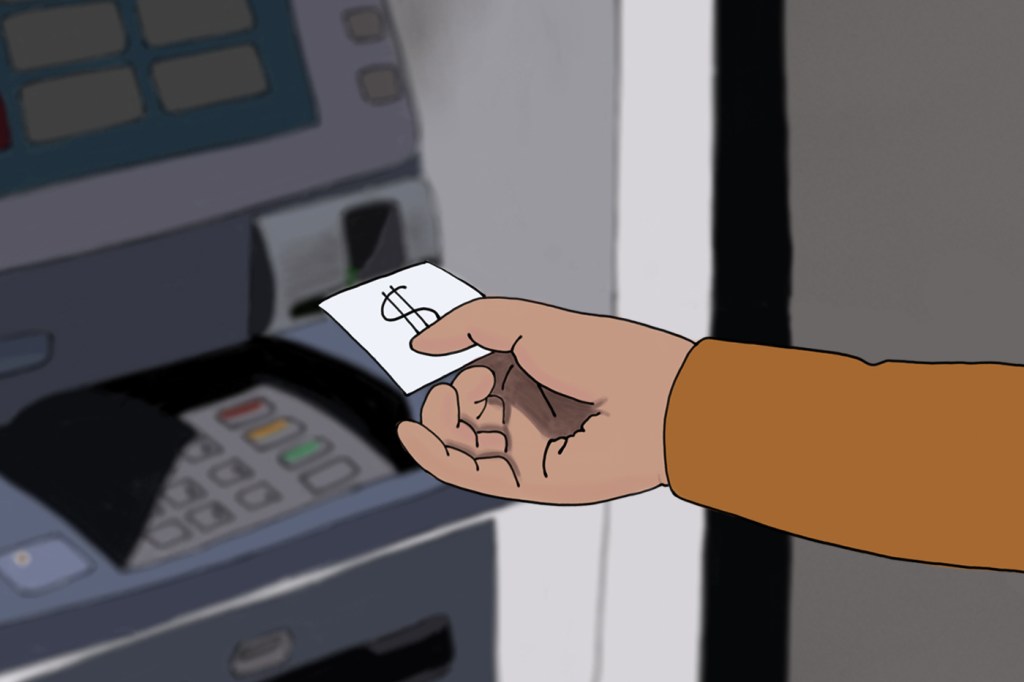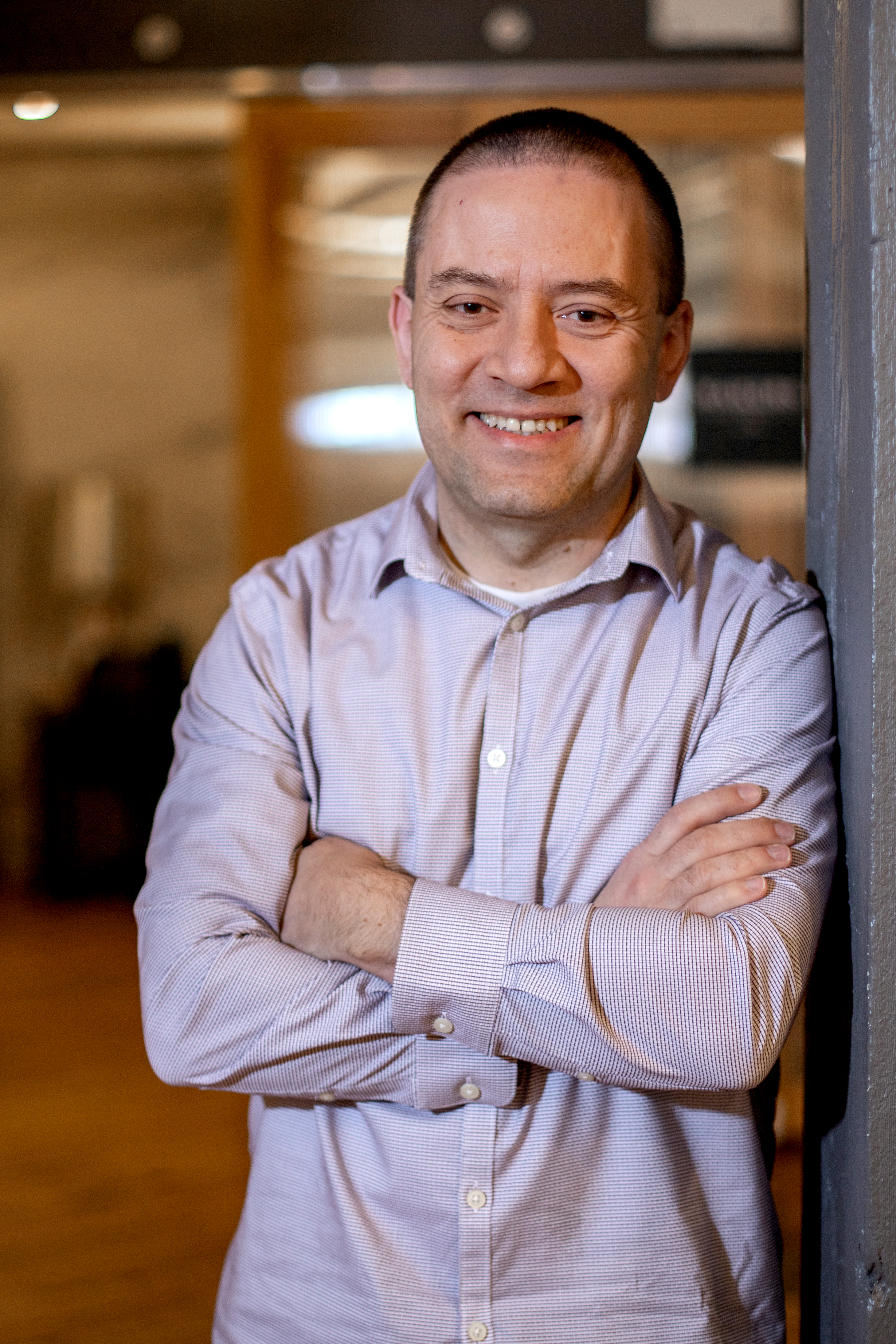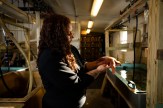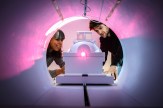He came to the US with $900, and convinced Jeff Bezos to invest in a billion-dollar industry

Nick Dimitrov’s home office in a leafy suburb just outside Seattle is a monument to his talents and past achievements: prestigious college diplomas, award commendations, and job offer letters to top-tier tech companies adorn his walls. Amidst it all, there’s a note from his father back in Bulgaria: “Live in such a way so you would never be forgotten.”
And then there’s the ATM receipt. Encased in ultraviolet-resistant glass and a thick wooden frame, the faded receipt is barely legible, but a closer look at the stub reveals a few unremarkable figures: A withdrawal of $20 from a checking account, and a balance of $567.91.

Nick Dimitrov. Courtesy photo Nick Dimitrov
Twenty five years later, the Northeastern graduate can still recall the way his stomach churned the first time he glanced down at this piece of paper. It was all that remained of the money his family had scrounged together by liquidating their life savings and borrowing from anyone they knew to send him off with to the U.S.
As if adapting to an unfamiliar culture wasn’t challenging enough, now he was terrified that his meager savings would run out on him well before the end of his first semester.
“That was the lowest of all low points for me,” Dimitrov told graduates of Northeastern’s Seattle campus at their Dec. 13 commencement ceremony, where he was the keynote speaker. “But it also serves as a reminder that being scared is OK, that fear is OK, as long as you find the strength, somehow, to push forward.”
Push forward he did. In 1999, Dimitrov graduated from the D’Amore McKim School of Business with a dual degree in finance and management information systems. Soon after, he was hired as a financial analyst by Microsoft, where he’d completed two co-ops as an undergraduate. And after 14 years at Microsoft—many of which he spent negotiating deals worth hundreds of millions of dollars—in 2013 he was brought on as a principal in developer relations and product management at Amazon, where he co-founded Amazon Game Studios, a division of the company dedicated to video games (Dimitrov was one of four people who had to convince Jeff Bezos himself to invest in what was then an untapped market segment for Amazon).
Fast-forward to today and Amazon has invested more than $1 billion in games, acquired the game-streaming platform Twitch, and developed its own 3D game engine. More importantly, says Dimitrov, a metamorphosis occurred within him at the time.
“For months, I would go to work, worried I would be fired by the end of each day,” he said. “My fear and discomfort had returned, but I was challenged and energized by it.”
In the ensuing years, Dimitrov became a U.S. citizen, bought a house, got married, and had a son, proving that he’d come a long way from the days of making $10 stretch an entire month and having to decide between getting a haircut or buying floppy disks for school.
“Life was comfortable and the dream of that immigrant freshman who was saving on haircuts and planning to build something truly remarkable was a distant memory,” he said.
Though he’d made many strides in life, after five years at Amazon, Dimitrov felt unfulfillment stirring within him again. He remembered his father’s maxim—“Live in such a way so you would never be forgotten”— and the dreams he’d cultivated at Northeastern of creating and building something to improve people’s lives, something that would outlast him.
Realizing that he’d become complacent, he quit his job at Amazon—forsaking more than $1 million of unvested stock grants—and in mid-2018, founded his own business. Called Amazon Bound, the company helps applicants prepare for an interview at Amazon, or any company that requires a behavioral interview, a common technique employers often use to assess job candidates based on past behavior.
Once again, Dimitrov finds himself facing a familiar foe: the fear of the unknown. Will his new company fail or will it succeed? Were the sacrifices that he made in taking this uncharted course worthwhile? All he knows is that he’s paying his good fortune forward, helping other immigrants—and potentially other Nicks—get to where he is today. In this way, he feels that he is finally fulfilling his father’s wish of building something that he hopes will outlast him.
“Having your own small business can be a very lonely, grinding, and hard process, but conversations with customers are what fuels me,” he says. “I could easily go back to Amazon and make a lot of money—a lot more money than I make now—and have more of a cushy life, but that would be bailing out on what I think I could accomplish. And I think I’m made for this kind of thing.”
Time will tell whether Amazon Bound will be the final incarnation of the American Dream for Dimitrov, or whether it’s a stepping stone to more success. The important thing is that once again he is channeling the fear that he’d felt as a 20-year-old immigrant student staring at a receipt telling him he had less than $600 to survive in the U.S. For him, says Dimitrov, it has never been about fulfilling the American Dream.
“It’s the pursuit of that dream,” Dimitrov says. “It’s an ongoing process.”
For media inquiries, please contact media@northeastern.edu.





